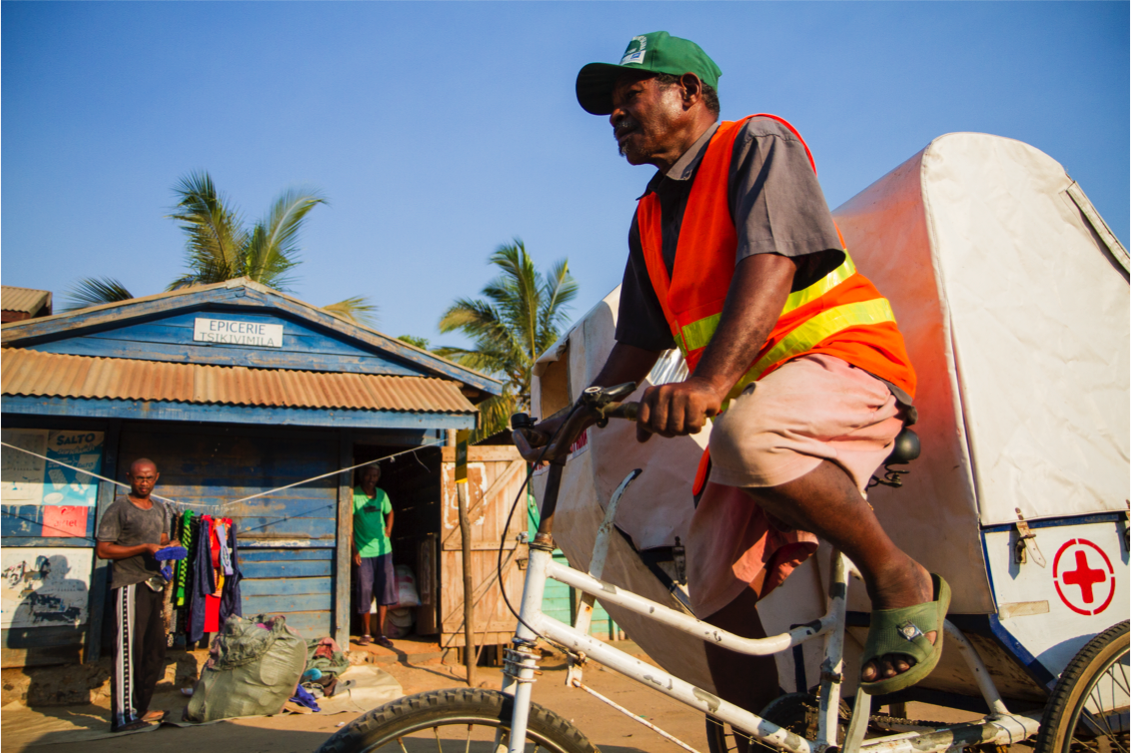A version of this photo essay was first published by John Snow Inc.
For 60-year-old Robin Erinesy of Antanambao, Morondava, in Madagascar, falling seriously ill with no way of getting to the nearest hospital was an agonizing experience. Hours passed before Robin’s family persuaded a passer-by on the road to drive them to hospital.

Several years later, when JSI introduced its MAHEFA program‘s emergency transport system to Robin’s community, he was eager to sign up and provide transport to community members in need.
“Knowing that I’m doing this for the good of those around me motivates me on a daily basis. I transport people with serious illnesses and also pregnant women who must travel to the basic health center for routine checkups or who are going into labor.”

Robin uses funds from his community’s “mutuelle de santé” [health insurance scheme], which pools resources to support the reimbursement of healthcare costs, ensuring that his cyclo-pousse is well maintained and runs smoothly. This enables a quick response if an emergency arises.
Although members of his community were at first reluctant to use the emergency transport system, Robin has won their trust by explaining its benefits.
“This is a completely new kind of transportation for this community. It has been important for me to gain people’s trust and help them understand how emergency transportation can save lives,” he said.

Robin and his “cyclo-pousse” have provided the Bemanonga district’s integral form of emergency transport since 2013. To date, he has saved more than 70 people with life-threatening conditions across three communities.

The USAID-funded Madagascar Community-Based Integrated Health Project, known locally as MAHEFA, was a five-year health program to provide basic, quality healthcare to isolated populations in six north and northwestern regions of Madagascar. The program’s overarching goal: increase the use of proven, community-based interventions and essential products among underserved populations of Madagascar.
